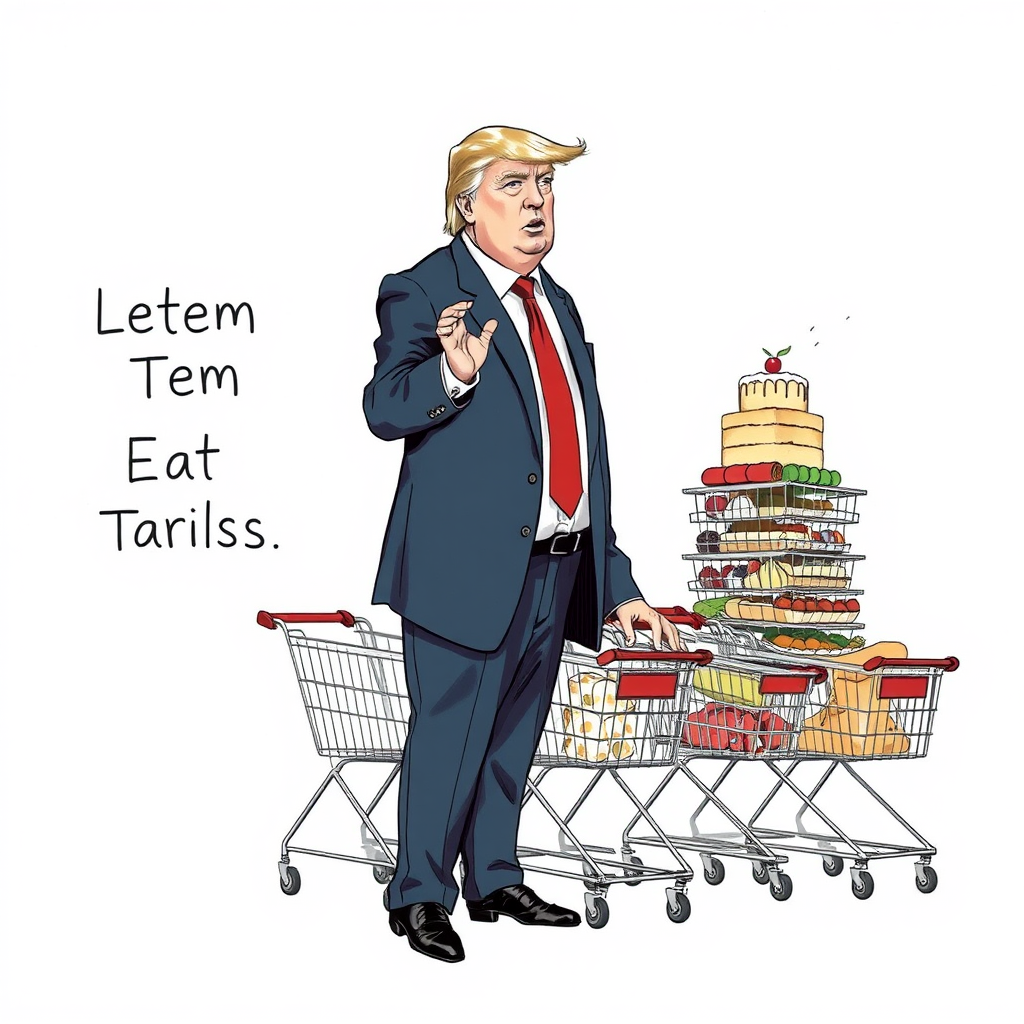Trump’s ‘Let Them Eat Tariffs’ Moment?

President Donald Trump’s recent suggestion that Walmart bear the burden of tariffs on imported goods has drawn sharp criticism and comparisons to Marie Antoinette, the famously detached former Queen of France. Reports surfaced Monday detailing Trump’s comments to Walmart executives, prompting a wave of commentary on cable news.
During a segment on MSNBC’s “The Weeknight,” host Alecia Menendez quipped, “Let them eat tariffs,” a clear allusion to the apocryphal quote attributed to the queen, “Let them eat cake.” The phrase quickly gained traction, with campaign manager Lucy Caldwell echoing the sentiment and labeling it Trump’s “Marie Antoinette moment.”
The discussion extended beyond the historical parallel, with panelists questioning the implications of Trump seemingly pressuring corporations to absorb the costs of his trade policies. Symone Sanders Townsend highlighted the unusual nature of a president “telling companies what to do,” suggesting it bordered on “communist-esque” and a departure from free enterprise principles. Caldwell concurred, describing the approach as “command and control” and leaning towards socialism.
Caldwell further elaborated on a significant shift in the American economy, noting that today’s corporate titans largely control digital and social media companies, unlike the manufacturing magnates of the early 20th century. She argued that while these companies deal in intangible products – “we don’t eat cans of Instagram soup” – the fundamental need for tangible goods and affordable necessities remains constant.
This disconnect, Caldwell suggested, is at the heart of Trump’s flawed logic. Despite campaigning on raising tariffs and promising costs would be borne by countries like China, the reality is that demand for affordable goods, like groceries at Walmart, isn’t diminishing. The “let them eat tariffs” approach, she predicted, will ultimately prove ineffective and could have significant electoral consequences.
Trump initially imposed tariffs of 10% on Canada and Mexico, and as high as 145% on China. However, he later reduced the tariffs on Chinese goods, first to 80%, and ultimately to 30%, according to CBS News reports.
The incident underscores a broader debate about the impact of Trump’s trade policies and the extent to which corporations should shoulder the costs. While Trump’s supporters may view his actions as strong negotiation tactics, critics argue that they represent a misguided attempt to circumvent basic economic principles and place an undue burden on consumers and businesses. The comparison to Marie Antoinette, while pointed, serves to highlight the perception of detachment from the economic realities faced by many Americans.